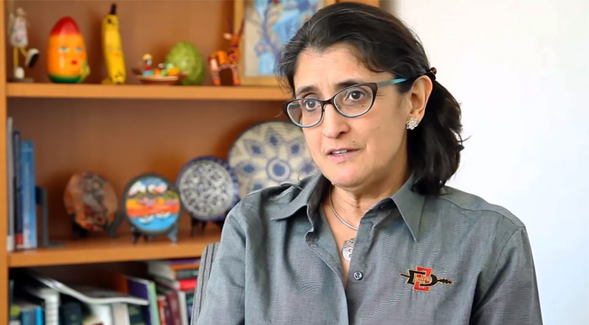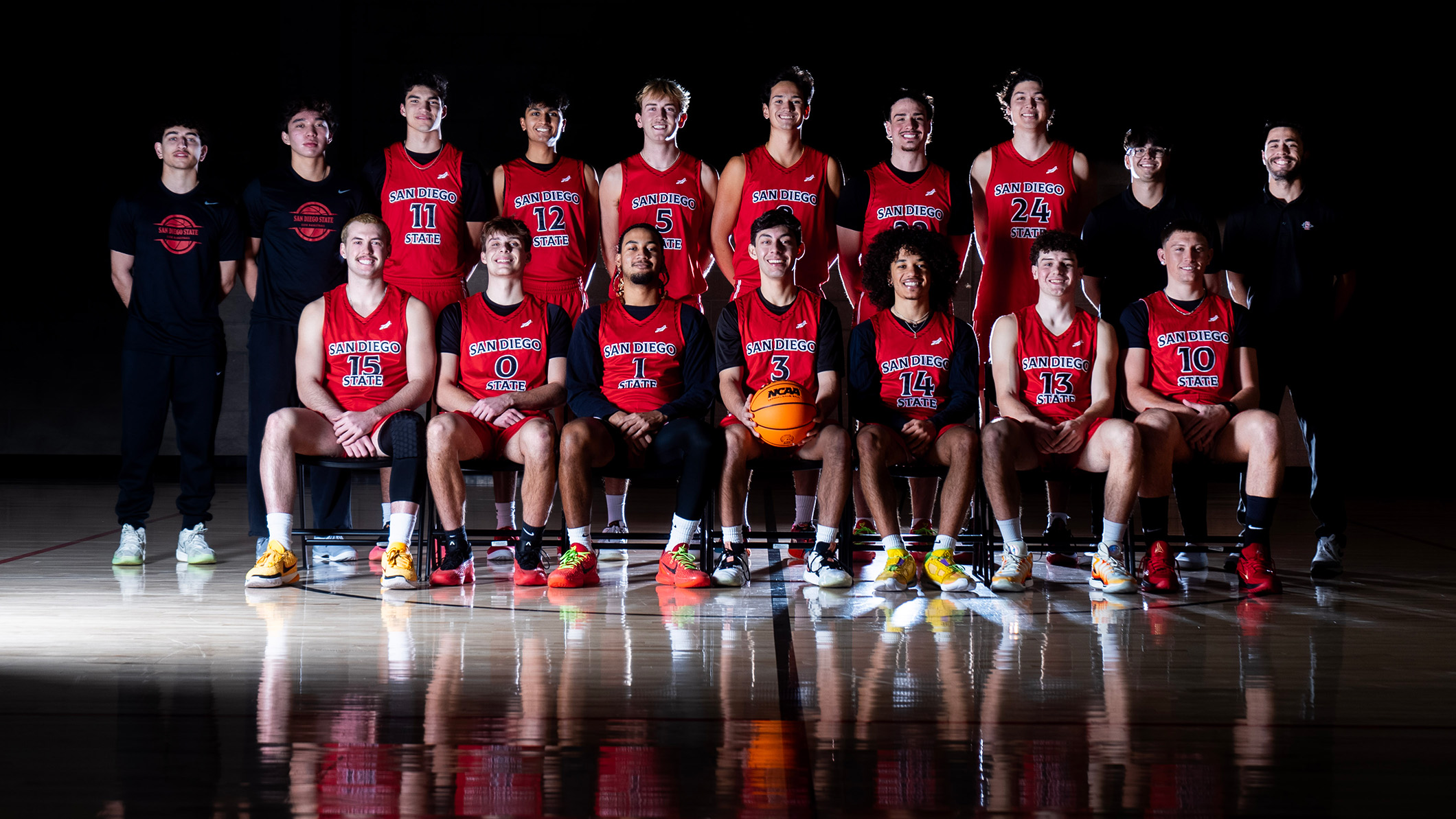Collaborating to Improve Health Care
Guadalupe X. Ayala, SDSUs new Zahn Professor of Creativity and Innovation, wants to team up students from different disciplines for big new ideas.

“She has a vision and a passion for using collaboration to improve intervention and health care in the community.”
The students in Guadalupe X. Ayala’s Public Health Communications class are full of ideas for effective health campaigns. Naturally, a big part is delivering messages across social media platforms that have become a ubiquitous presence in their lives. But programming a new app or developing an algorithm to capture a specific health behavior?
That’s for the engineers, two buildings over.
Now, armed with a new academic position aimed at encouraging creative collaboration, Ayala hopes to work on teaming up San Diego State University students from different disciplines to tackle public health challenges none of them can accomplish on their own. Such bridges aren’t new, but so far they’ve involved more closely related academic fields, such as public health and nursing or social work.
“What I would love to be able to do is bring the disciplines of public health and electrical engineering, for example, into the classroom together,” said Ayala, co-director of SDSU’s Institute for Behavioral and Community Health.
“In this way, public health students can work alongside engineering students in programming digital applications for health,” she explained. “Similarly, electrical engineering students can learn from public health students about which behaviors are more clinically relevant to monitor.”
Ayala, who in 2016 drew a $10 million endowment from a division of the National Institutes of Health (NIH), has been named the university’s second Zahn Professor of Creativity and Innovation. The two-year appointment, supported by the San Diego-based Moxie Foundation, is intended to advance curricular, experiential, and interdisciplinary opportunities for students and fellow faculty.
READ: SDSU Nets $135 Million in Grant Funding for 2017-18
“Dr. Ayala has achieved impressive success in attracting funding for transdisciplinary research in health sciences at SDSU,” said Joseph Johnson, Jr., interim provost and senior vice president for Academic Affairs, who made the appointment. “She has a vision and a passion for using collaboration to improve intervention and health care in the community. Her ideas will help promote the culture of creativity and innovation that the Moxie Foundation has fostered through its longstanding partnership with SDSU.”
Ayala said she wants to use the position to build on work funded by the NIH endowment “and start integrating some of its philosophy and practice into the classroom.”
Using the public health communication course as an example, Ayala said students readily understand the principles for developing an effective health campaign. Facebook, Instagram and other social media platforms are some of their preferred channels, but they’re not trained in the technical side of using them.
In engineering and computational sciences, meanwhile, the students who are comfortable with the tech end may not understand health behavior or meaningful health outcomes, Ayala noted.
The health sciences “have no curriculum on how to develop an app, or how to use technology to monitor health. We are only beginning to understand how to use the mounds of data available to us on a person’s health,” Ayala said.
Yet, SDSU graduates will be working in fields requiring knowledge of newer technology and data science. “If we don’t equip them with these skills, we’re doing them a disservice,” she said.
Ayala said the future requires working with mechanical engineers, electrical engineers and computational scientists who live and breathe “big data” and know how to crunch numbers in a more effective way. The result of these collaborations could bring students from the colleges of Health and Human Services, Engineering and Sciences together in new and different ways to capitalize on the strengths of their respective disciplines.
Ayala’s $10 million endowment from the National Institute of Minority Health and Health Disparities is structured to provide funding for 20 years and support the collaborations she is envisioning as the new Zahn Professor of Creativity and Innovation.



